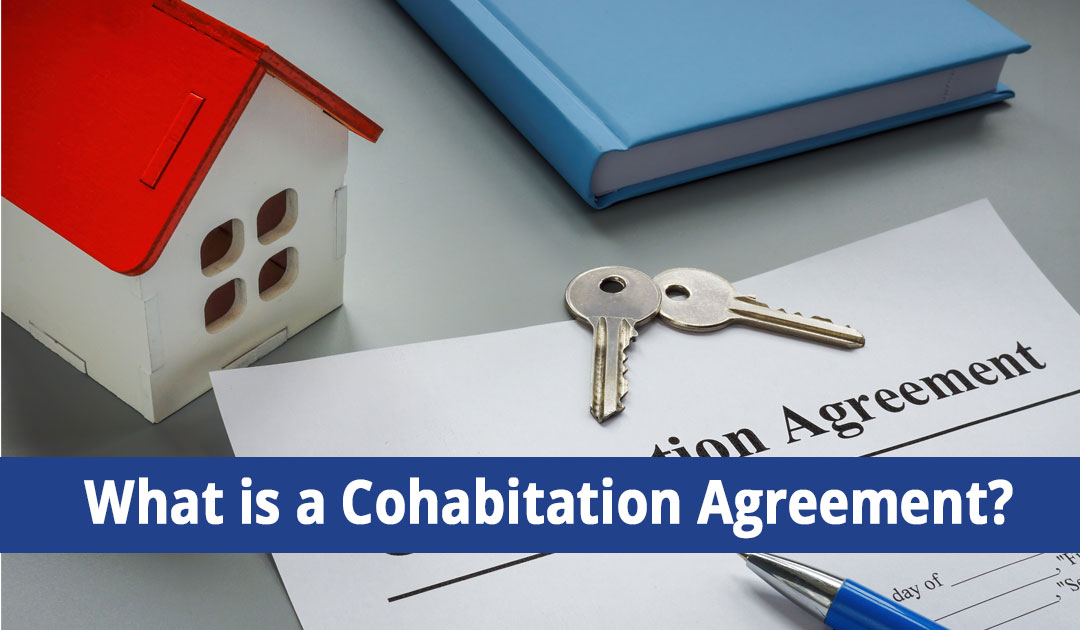What is a Cohabitation Agreement in New York?

Navigating the complexities of family law on Long Island, New York can be an arduous task, particularly for couples who have lived together for many years, but who are not legally married. New York state law does not recognize common law marriage, so couples who have cohabitated similar to a married couple do not enjoy the same rights and responsibilities as those of couples who have been legally married in the state. These rights and responsibilities can become incredibly important in the event you and your partner decide to go your separate ways. Without a marriage license, cohabitating couples have no rights to property, child custody, support and all the other issues that are decided in a divorce in New York state.
A cohabitation agreement is one way to help protect a couple living together for an extended period. Similar to a prenuptial or post-nuptial agreement, a cohabitation agreement is a legal contract between two individuals who live together but are not married. This agreement outlines the rights and obligations of each party regarding property, finances, and other relevant matters.
In this article, we will delve into the specifics of cohabitation agreements in New York, discussing their enforceability, and whether there are ways to navigate around them. Our goal is to provide you with a comprehensive understanding of this legal instrument, helping you make informed decisions that protect your interests.
Understanding Cohabitation Agreements in New York
What is a Cohabitation Agreement?
A cohabitation agreement is a legally binding contract between partners who choose to live together without getting married. This agreement typically covers various aspects such as property ownership, financial responsibilities, debt allocation, and arrangements in the event of separation or death.
Why is a Cohabitation Agreement Important in New York?
Cohabitation agreements serve several critical purposes:
- Clarifying Financial Responsibilities: Establishing clear guidelines on how expenses will be shared.
- Property Rights: Defining ownership and distribution of property acquired during the relationship.
- Debt Allocation: Outlining responsibilities for any debts incurred.
- Dispute Resolution: Providing mechanisms for resolving disagreements without resorting to litigation.
Legal Basis for Cohabitation Agreements in New York
New York law recognizes the validity of cohabitation agreements, provided they meet standard contractual requirements. These include mutual consent, consideration, and the absence of duress or fraud. Both parties must voluntarily enter into the agreement and fully understand its terms and implications.
Enforceability of Cohabitation Agreements in New York
Key Elements of an Enforceable Cohabitation Agreement
To ensure a cohabitation agreement is enforceable, it must include the following elements:
- Written Form: The agreement must be in writing and signed by both parties.
- Full Disclosure: Both parties must fully disclose their financial status, including assets, liabilities, and income.
- Independent Legal Advice: It is advisable for each party to seek independent legal counsel to ensure they understand their rights and obligations.
- Fair and Reasonable Terms: The terms of the agreement must be fair and reasonable at the time of signing.
Challenges to Enforceability of Cohabitation Agreements
Despite the agreement’s validity, there are circumstances under which a cohabitation agreement may be challenged in court:
- Fraud or Misrepresentation: If one party can prove that the agreement was signed based on fraudulent information or misrepresentation.
- Duress or Coercion: If one party was forced or coerced into signing the agreement.
- Unconscionability: If the terms of the agreement are so one-sided that they are deemed unconscionable.
Is There a Way Around the Cohabitation Agreement in NY?
Modifying the Cohabitation Agreement
It is possible to modify a cohabitation agreement if both parties mutually agree to the changes. Any modifications must be documented in writing and signed by both parties to be legally binding.
Terminating a Cohabitation Agreement
A cohabitation agreement can be terminated under the following circumstances:
- Mutual Agreement: Both parties agree to dissolve the agreement.
- Marriage: If the couple decides to get married, the cohabitation agreement may be replaced by a prenuptial agreement.
- Separation: If the couple separates, the agreement may outline the terms of property division and financial responsibilities.
Court Intervention
In some cases, a court may intervene to modify or nullify a cohabitation agreement if it finds that the agreement is unenforceable due to fraud, duress, or unconscionable terms.
Drafting a Cohabitation Agreement for New York
Key Clauses to Include
When drafting a cohabitation agreement, consider including the following key clauses:
- Property Ownership: Define who owns the property acquired during the relationship and how it will be divided upon separation.
- Financial Responsibilities: Outline each party’s financial responsibilities, including how expenses will be shared.
- Debt Allocation: Specify how debts incurred during the relationship will be handled.
- Dispute Resolution: Include mechanisms for resolving disputes, such as mediation or arbitration.
Seeking Legal Assistance with a Cohabitation Agreement
Given the complexities involved in drafting a cohabitation agreement, it is advisable to seek legal assistance experienced in the laws in New York state. An experienced family law attorney can help ensure that the agreement is comprehensive, fair, and legally enforceable.
Practical Considerations of Cohabitation Agreements in New York
Communicating with Your Partner
Open communication is essential when discussing a cohabitation agreement with your partner. Ensure that both parties fully understand the terms and implications of the agreement.
Reviewing the Agreement Periodically
It is wise to review the cohabitation agreement periodically to ensure it remains relevant and fair. Life circumstances can change, and the agreement should reflect these changes. For example, you may have begun cohabitating shortly after completing your education, when you likely had few assets. Several years down the road and you now both have careers and assets, perhaps own your own home and drive nicer cars. You may even have a child together. Each of these things should be addressed in a comprehensive cohabitation agreement.
Understanding Your Rights and Obligations
Both parties should have a clear understanding of their rights and obligations under the agreement. This includes knowing how to enforce the agreement and what steps to take if disputes arise.
Cohabitation Agreements are Valuable Tools in New York
Cohabitation agreements are valuable tools for protecting the interests of individuals who choose to live together without getting married. By clearly defining financial responsibilities, property rights, and dispute resolution mechanisms, these agreements provide a framework for a harmonious living arrangement.
However, the enforceability of a cohabitation agreement depends on its adherence to legal standards and the absence of fraud, duress, or unconscionable terms. If you are considering entering into a cohabitation agreement or need assistance with an existing one, consulting with a seasoned family law attorney can provide the guidance and support you need.
By understanding the nuances of cohabitation agreements in New York, you can make informed decisions that safeguard your interests and contribute to a stable and equitable living arrangement.
Contact the experienced legal team at Hornberger Verbitsky, P.C. for a free consultation and case evaluation regarding your cohabitation agreement. Schedule your appointment by calling 631-923-1910 or filling out the short form on this page.
~ Caitlyn Coltelino
GET YOUR FREE CONSULTATION TODAY Call 631-923-1910 or fill in the form below

Horberger Verbitsky, P.C. partners Robert E. Hornberger, Esq. and Christine M. Verbitsky, Esq.
Get your complimentary consultation and case evaluation with our experienced attorneys today. Your attorney will describe the many options available and determine together which is the right solution for you. By the end of this conversation, we’ll all understand how we can best help you to move forward.
No Cost or Obligation
There is no cost or obligation for this initial consultation. It is simply an opportunity for us to get to know each other, answer your questions and learn if Hornberger Verbitsky, P.C. is right the right law firm for you. Give us a call at 631-923-1910 or fill in the short form below for your free consultation and case evaluation. All Fields Are Required
About the Author
Robert E. Hornberger, Esq., Founding Partner, Hornberger Verbitsky, P.C.
- Over 20 years practicing matrimonial law
- Over 1,000 cases successfully resolved
- Founder and Partner of Hornberger Verbitsky, P.C.
- Experienced and compassionate Long Island Divorce Attorney, Family Law Attorney, and Divorce Mediator
- Licensed to practice law in the State of New York
- New York State Bar Association member
- Nassau County Bar Association member
- Suffolk County Bar Association member
- “Super Lawyer” Metro Rising Star
- Nominated Best of Long Island Divorce Attorney four consecutive years
- Alternative Dispute Resolution Committee Contributor
- Collaborative Law Association of New York – Former Director
- Martindale Hubbell Distinguished Designation
- America’s Most Honored Professionals – Top 5%
- Lead Counsel Rated – Divorce Law
- American Institute of Family Law Attorneys 10 Best
- International Academy of Collaborative Professionals
- Graduate of Hofstra University School of Law
- Double Bachelor’s degrees in Philosophy, Politics & Law and History from SUNY Binghamton University
- Full Robert E. Hornberger, Esq. Bio














